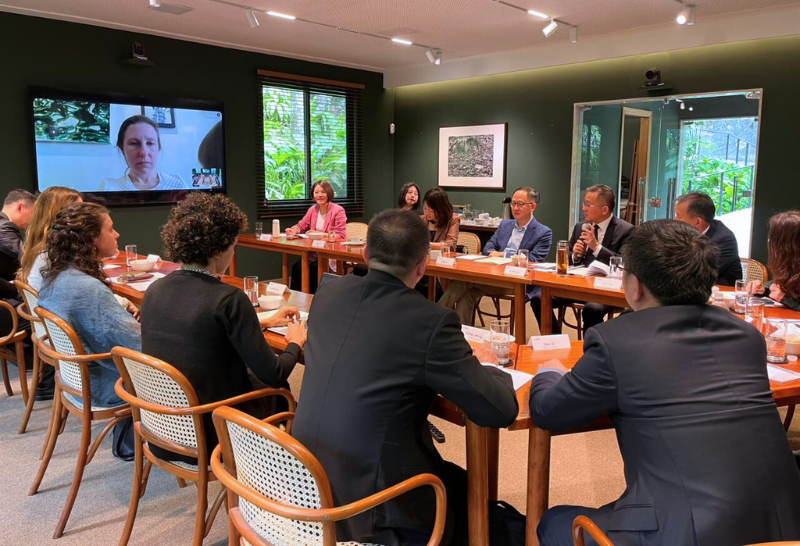Meeting with CPAFFC highlights sustainability initiatives and Brazil-China cooperation.
- Asia
- 05 november 2025
On November 4th, the Brazilian Center for International Relations (CEBRI) hosted a delegation from the Chinese People's Association for Friendship with Foreign Countries (CPAFFC) and representatives from the Suzhou City Hall at Casa COP30.
The opening was led by Senior Fellow at CEBRI, Larissa Wachholz, who welcomed the Chinese delegation and highlighted CEBRI's satisfaction in hosting them again, this time at the new headquarters, designed as a space for discussing sustainability and energy transition issues. Larissa emphasized the history of cooperation between CEBRI and CPAFFC and expressed interest in strengthening the partnership through new joint projects.
CPAFFC Vice President Shen Xin expressed his gratitude for the hospitality and emphasized the importance of the dialogue with CEBRI for strengthening Sino-Brazilian relations. Following this, Xu Weidong, Deputy Secretary-General of the Suzhou City Council, presented an overview of the city, highlighting its more than 2,500-year history and its high-tech manufacturing-based economy. Weidong further stressed that Suzhou maintains cooperative relationships with 60 cities in 29 countries and invited CEBRI and partner institutions to visit the city to deepen cooperation in green development and technological innovation.
CEBRI, represented by the Geopolitics Program, presented the meeting's agenda, highlighting that the bilateral relationship between Brazil and China has recently been elevated to the concept of a Brazil-China Shared Future Community for a More Just World and a More Sustainable Planet.
The Municipality of Suzhou presented an international initiative, launched in 2025, aimed at zero-emission, zero-waste cities, with the participation of Washington, Portland, Shanghai, and Suzhou. The proposal seeks to promote climate governance, the circular economy, and green development globally. CEBRI was invited to contribute to the integration of Brazilian cities and institutions into the initiative.
In the Climate and Energy Transition agenda, the main lines of work of CEBRI, which focused on air quality, urban sustainability and carbon neutrality by 2050, were presented. The parties discussed the creation of exchange programs between experts and municipalities to share public policies and sound environmental practices.

